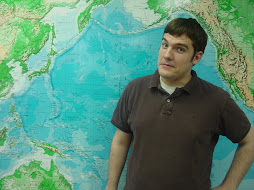Wednesday, June 4, 2008
Wesch: The Anti-Teacher
Wesch, cultural anthropology professor at Kansas State, has some grand ideas; however, he doesn't take into account that while his subject works perfectly for ethnographic research and shared discussion, subjects like organic chemistry chemistry and calculus aren't subject where you can explore meaning and create little discussion forums easily. The humanities and the social sciences are by nature gray in areas (allowing for questions that maybe never be answered). As my communication theory professor said, there is truth(with a small t) in a humanistic approach toward knowledge; however , in a scientific framework, which basic math and science follow, Truth(with a Capital T) exists. Teachers might be able to engage students in some small question answer/hypothetical situation/labs, but there is basic information that has to be delivered to them that is black and white and can't be gained through group discussion on meaning. He becomes very conceptual and epistemological because of how meaning and significance are created when it fits out narrative. Walter Fisher's narrative paradigm in rhetoric all argues that knowledge/rhetoric must have coherence and fidelity in order for us to understand and agree with it. While Wesch fails to point out what these antiquated narratives are, I like his idea that you can connect learning to the idea of being part of a world community, and in the end any discipline can ultimately help improve that world community through application of knowledge. I'm sure Wesch's classes are interesting and engaging and he does bring up good points about many college professors' teaching style; however, I don't think that you have to completely throughout old teaching methods(lecture/tests), but make them a much smaller part of a larger learning goal as the 4-MAT on instruction indicates with its wheel.
Subscribe to:
Post Comments (Atom)


No comments:
Post a Comment